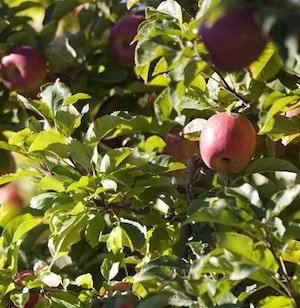For several seasons, grower returns have been below production costs.

New Zealand expects to export fewer than 3 million boxes of Braeburn this season, down from 8 million in 2005.
Courtesy Pipfruit New Zealand.
The volume of Braeburn apples exported from New Zealand in 2012 is expected to be down more than 25 percent from last year, according to information from Pipfruit New Zealand, Inc., which represents the country’s apple and pear industries.
The Braeburn sales window is just starting in Europe, with the first supplies of the season now reaching wholesale markets. Supermarket programs are likely to begin in mid-June. The lower volume reflects a shorter crop of smaller fruit, attributed to cool summer growing conditions, but also to growers sending more of their crop to processors and reducing their risk, Alan Pollard, chief executive officer of Pipfruit New Zealand said in a press release.
For several seasons, growers have received below-cost returns on Braeburn apples, even though the volume shipped has been steadily declining. The volume exported has dropped from eight million cartons in 2005 to fewer than three million predicted this year, Pollard said. “This represents a significant change over a short time for a tree-fruit crop.”
One of the reasons for the low returns includes the relatively high value of the New Zealand dollar versus other currencies, and competition from other varieties, such as Jazz and Pink Lady, for market share. In addition, fruit consumption in Europe has been slow for some months, with consumers looking for bargains, Pollard reports. Southern Hemisphere suppliers have responded by cutting Gala exports to Europe by almost 40 percent.
With the reduced volume of Braeburn on the market this year, New Zealand exporters are more optimistic.
“Braeburn is an iconic New Zealand apple, and there is good consumer demand for it in Europe,” Pollard said. “The fruit this year is highly colored and has excellent texture and eating quality. I am confident that this year’s smaller-than-predicted crop will be sold at sustainable prices and that the variety will remain a key part of our international supply.”

Leave A Comment